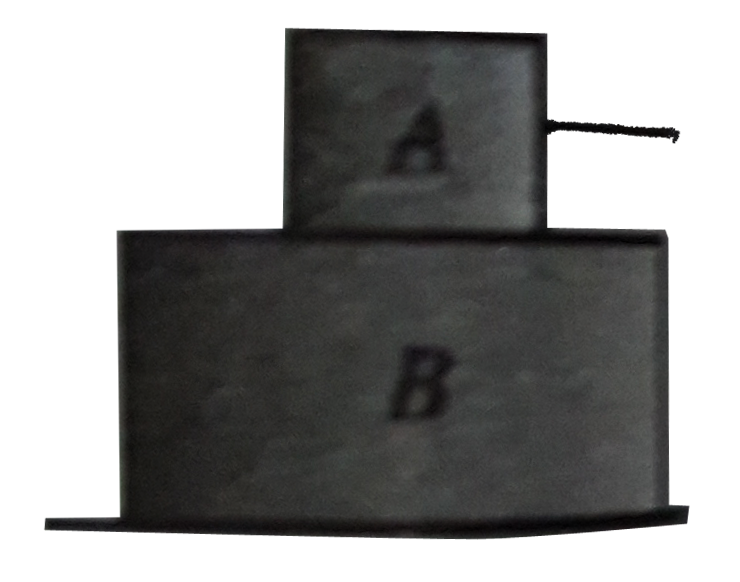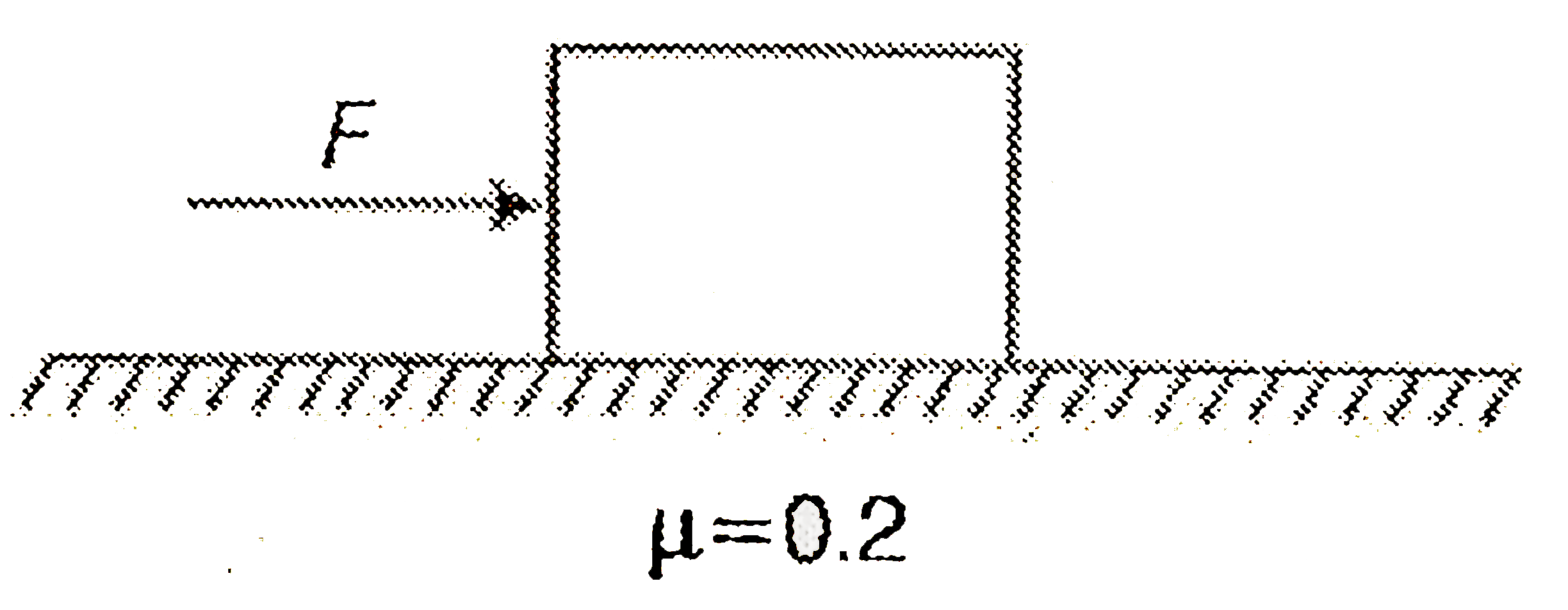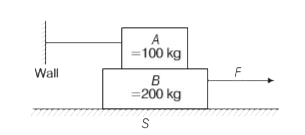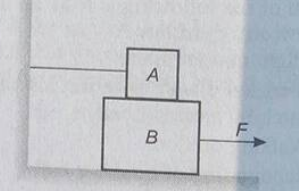A body A of mass 1 kg rests on a smooth surface. Another body B of mass 0.2 kg is placed over A as shown. The coefficient of static friction between A and B is 0.15. B will begin to slide on A, if A is pulled with a force greater than -

1.764 N
0.1764N
0.3N
it will not slide for any F
The correct Answer is:A
Step by step video, text & image solution for A body A of mass 1 kg rests on a smooth surface. Another body B of mass 0.2 kg is placed over A as shown. The coefficient of static friction between A and B is 0.15. B will begin to slide on A, if A is pulled with a force greater than - by Physics experts to help you in doubts & scoring excellent marks in Class 11 exams.
Topper's Solved these Questions
Similar Questions
A block A of mass 2 kg rests on another block B of mass 8 kg which rests on a horizontal floor . The coefficient of friction between A and B is 0.2 while that between B and floor is 0.5 . When horizontal force F = 25 N is applied on the block B , the force of friction between A and B is (in N) .
View SolutionA block A of mass 2kg is placed over smooth block B of mass 4kg which is placed over a smooth horizontal floor The coefficient of friction between A and B is 0.4 when a horizontal forces of magnitude 10N is applied on A the acceleration of block of A and B are
 View Solution
View Solution
Knowledge Check
- Question 1 - Select One
A body of mass 2 kg is placed on rough horizontal plane. The coefficient of friction between body and plane is 0.2 Then,
 Abody will move in forward direction if F = 5 NBbody will be move in backward direction with acceleration 0.5m/s2 if force F = 3NCif F = 3N, then body will be in rest conditionDBoth a and c are correct
Abody will move in forward direction if F = 5 NBbody will be move in backward direction with acceleration 0.5m/s2 if force F = 3NCif F = 3N, then body will be in rest conditionDBoth a and c are correct - Question 2 - Select One
A body A of mass 20 kg collides with another body B of mass 1 kg. then
Aforce exerted by A on B is more than that exerted by B on ABforce exerted by B on A is more than that exerted by A on BCforces exerted by B and A are equel and oppositeDcannot predict. - Question 3 - Select One
A block A of mass 100 kg rests on another block B of mass 200 kg and is tied to a wall as shown in the figure. The coefficient of friction between A and B is 0.2 and that between B and ground is 0.3. The minimum force required to move the block B is (g=10ms−2)
 A900 NB200 NC1100 ND700 N
A900 NB200 NC1100 ND700 N
A force of 98 N is required to just start moving a body of mass 100 kg over ice. The coefficient of static friction is
View SolutionA block A of mass 100 kg rests on another block B of mass 200 kg and is tied to a wall as shown in the figure. The coefficient of friction between A and B 0.3. The minimum force F required to move the block B is (g=10−2
 View Solution
View SolutionA block A of mass 100 kg rests on another block B of mass 200 kg and is tied to a wall as shown in the figure. The coefficient of friction between A and B 0.3. The minimum force F required to move the block B is (g=10−2
 View Solution
View SolutionA block A of mass 2 kg rests on another block B of mass 8 kg which rests on a horizontal floor. The coefficient of friction between A and B is 0.2 while that between B and floor is 0.5. when a horizontal force of 25 N is applied on the block B. the force of friction between A and B is
View SolutionA block A of mass 2kg rests on another block B of mass 8kg which rests on a horizontal floor. The coefficient of friction between A and B is 0.2 while that between B and floor is 0.5.When a horizontal floor F of 25N is applied on the block B the force of friction between A and B is
View Solution

